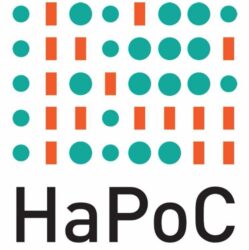CALL FOR PAPERS:
================
CiE 2017: Unveiling Dynamics and Complexity
Turku, Finland
June 12-16, 2017
http://math.utu.fi/cie2017
IMPORTANT DATES:
================
Deadline for article submission: January 5, 2017
Notification of acceptance: March 1, 2017
Final versions due: March 13, 2017
Early registration before: May 8, 2017
CiE 2017 is the thirteenth conference organized by CiE (Computability in Europe), a European association of mathematicians, logicians, computer scientists, philosophers, physicists and others interested in new developments in computability and their underlying significance for the real world.
Previous meetings have taken place in Amsterdam (2005), Swansea (2006), Siena (2007), Athens (2008), Heidelberg (2009), Ponte Dalgada (2010), Sofia (2011), Cambridge (2012), Milan (2013), Budapest (2014), Bucharest (2015) and Paris (2016).
THE PROGRAMME COMMITTEE cordially invites all researchers (European and non-European) to submit their papers in all areas related to computability for presentation at the conference and inclusion in the proceedings at https://www.easychair.org/conferences/?conf=cie2017.
Papers must be submitted in PDF format, using the LNCS style (available at ftp://ftp.springer.de/pub/tex/latex/llncs/latex2e/llncs2e.zip) and should have a maximum of 10 pages, including references but excluding a possible appendix in which one can include proofs and other additional material. Papers that build bridges between different parts of the research community are particularly welcome.
The CONFERENCE PROCEEDINGS will be published by LNCS, Springer Verlag.
ORGANIZED BY:
=============
Department of Mathematics and Statistics, University of Turku
Computer Science, Åbo Akademi University
email: cie2017@utu.fi
WOMEN IN COMPUTABILITY PROGRAM AND GRANTS:
==========================================
We are happy to announce that the CiE Women in Computability program, coordinated by the Special Interest Group Women in Computability
http://sat.mdx.ac.uk/cie-wp/index.php/cie-conference-series/cie-cs-women-in-computability/
offers four grants of up to 250 EUR for junior female researchers who want to participate in CiE 2017. Applications for this grant should be send to Liesbeth De Mol (liesbeth.demol@univ-lille3.fr) before 1 May 2017 and include a short cv (at most 2 pages) and contact information for an academic reference. Preference will be given to junior female researchers who are presenting a paper (including informal presentations) at CiE 2017.
TUTORIAL SPEAKERS:
==================
Denis R. Hirschfeldt (University of Chicago)
Daniel M. Gusfield (University of California, Davis)
INVITED SPEAKERS:
=================
Scott Aaronson (University of Texas at Austin)
Karen Lange (Wellesley College)
Ludovic Patey (Université Paris Diderot)
Nicole Schweikardt (Humboldt-Universit ät zu Berlin)
Alexander Shen (Université de Montpellier)
Moshe Vardi (Rice University)
SPECIAL SESSIONS:
=================
Algorithmics for biology:
————————-
Organized by Paola Bonizzoni (Milano, Italy) and Veli Mäkinen (Helsinki, Finland). Speakers:
Tobias Marschall (Max-Planck-Institut für Informatik)
Fabio Vandin (University of Padova)
Gregory Kucherov (University Paris-Est Marne-la-Vallée)
Gianluca Della Vedova (University of Milano-Bicocca)
Combinatorics and algorithmics on words:
—————————————-
Organized by Tero Harju (Turku, Finland) and Dirk Nowotka (Kiel, Germany). Speakers:
Stepan Holub (Charles University in Prague)
Pascal Ochem (Université de Montpellier)
Svetlana Puzynina (Sobolev Institute of Mathematics and École Normale Supérieure de Lyon)
Narad Rampersad (University of Winnipeg)
Computability in analysis, algebra, and geometry:
————————————————-
Organized by Julia Knight (Notre Dame, USA) and Andrey Morozov (Novosibirsk, Russia). Speakers:
Saugata Basu (Purdue University)
Margarita Korovina (University of Aarhus)
Alexander Melnikov (University of California, Berkeley)
Russell Miller (Queens College, City University of New York)
Cryptography and information theory:
————————————
Organized by Delaram Kahrobaei (New York, USA) and Helger Lipmaa (Tartu, Estonia). Speakers:
Jean-Charles Faugère (Université Pierre et Marie Curie)
Elham Kashefi (University of Edinburgh-Scotland, Université Pierre et Marie Curie)
Aggelos Kiayias (University of Edinburgh)
Ivan Visconti (Università degli Studi di Salerno)
Formal languages and automata theory:
————————————-
Organized by Juhani Karhumäki (Turku, Finland) and Alexander Okhotin (St. Petersburg, Russia). Speakers: TBA
History and philosophy of computing:
————————————
Organized by Liesbeth De Mol (Lille, France) and Giuseppe Primiero (London, United Kingdom). Speakers: TBA
Contributed papers will be selected from submissions received by the PROGRAM COMMITTEE consisting of:
Andrew Arana (Urbana-Champaign, US)
Arnold Beckmann (Swansea, UK)
Paola Bonizzoni (Milan, IT)
Olivier Bournez (Palaiseau, FR)
Vasco Brattka (Munich, DE)
Cristian S. Calude (Auckland, NZ)
Ann Copestake (Cambridge, UK)
Liesbeth De Mol (Lille, FR)
Helena Durnová (Brno, CZ)
Ekaterina Fokina (Vienna, AT)
Tero Harju (Turku, FI)
Emmanuel Jeandel (Nancy, FR)
Emil Jeřábek (Prague, CZ)
Natašha Jonoska (Tampa, US)
Jarkko Kari (Turku, FI, co-chair)
Viv Kendon (Durham, UK)
Takayuki Kihara (Berkley, US)
Florin Manea (Kiel, DE)
Klaus Meer (Cottbus, DE)
Russell Miller (New York City, US)
Bernard Moret (Lausanne, CH)
Rolf Niedermeier (Berlin, DE)
Dag Normann (Oslo, NO)
Dirk Nowotka (Kiel, DE)
Isabel Oitavem (Lisbon, PT)
Ion Petre (Turku, FI, co-chair)
Kai Salomaa (Kingston, CA)
Reed Solomon (Storrs, US)
Mariya Soskova (Sofia, BG)
Susan Stepney (York, UK)
Peter Van Emde Boas (Amsterdam, NL)
Philip Welch (Bristol, UK)
Damien Woods (Pasadena, US)
Association CiE:
http://computability.org.uk
CiE Conference Series:
http://illc.uva.nl/CiE
CiE 2017 on Facebook:
https://www.facebook.com/CIE.Conference2017
CiE 2017 on Twitter:
https://twitter.com/2017Cie
CiE 2017 on Instagram:
https://instagram.com/cie.2017
